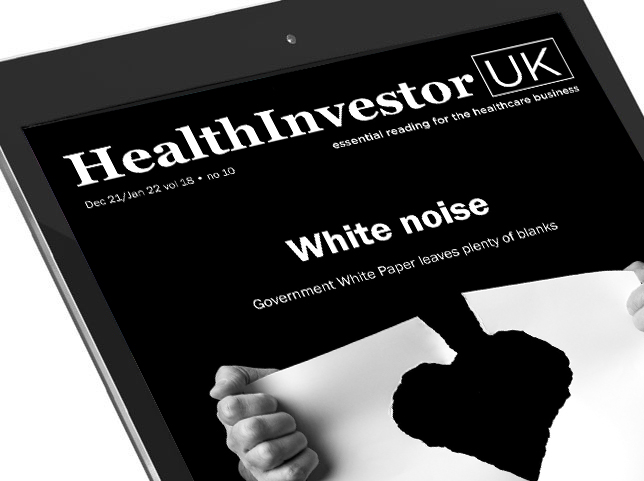Patients before politics
The need for collaboration in the wake of Paterson
The relationship between the private hospital sector and the NHS is at a crossroads. The publication last month of the much-anticipated inquiry into the shameful activities of the jailed breast surgeon Ian Paterson was the latest episode in a long-running saga of reputational disasters that have plagued the private sector for years – but the health service was also singled out for criticism. Junior health minister Nadine Dorries was quick to “acknowledge the failure of the entire healthcare system to protect patients from Ian Paterson’s malpractice and to remedy the harms”.
The private acute sector has had little excuse for not getting its clinical governance house in order. For years, independent providers have been accused of being little more that bed and breakfast facilities where unaccountable surgeons bring their patients.
At some of the busier private hospitals, it is estimated that each consultant is worth around £380,000 a year to the provider and many say it has hardly been in their interests to question too deeply the nature of the procedures taking place on their premises. After all, there is no shortage of private sector beds to which an aggrieved doctor could transfer his allegiance.
This arm’s length relationship with clinicians also leaves providers open to accusations of callous abrogation of responsibility when things go wrong. As David Rowland of the Centre for Health and the Public Interest said in the wake of the report’s publication: “Unlike in the NHS, hospitals private hospitals do not directly employ the consultants who work in them. Hospitals can therefore argue that they are not responsible for their freelancer’s actions.”
The last chance saloon
But with the Paterson scandal, the penny seems to have dropped and the private acute sector is to be applauded for now taking positive action. The Independent Healthcare Providers Network has established the Medical Practitioners Assurance Framework, to oversee medical practitioners working in independent hospitals.
Crucially, this will involve sharing concerns with the NHS in a two-way process that will quickly identify unsafe or rogue clinicians like Paterson.
Andrew Vallance-Owen, chair of the Private Healthcare Information Network, sums it up when he says “data reporting and clinical governance too often remains fragmented. A single repository of whole practice consultant information, available to managers and healthcare professionals will support better clinical governance and help identify patterns of poor care at an earlier stage. It is vital that this is also available to the public in an accessible and understandable way.”
Rather than introduce sweeping statutory reform, Nadine Dorries calls for greater collaboration using current mechanisms. “Patient safety is a continual process of vigilance and improvement,” she says. “The inquiry does not jump to a demand for the NHS and the independent sector to invent multiple new processes, but to actually get the basics right, implement existing processes, and for all professional people to behave better and to take responsibility.”
This will no doubt be a relief to investors who perhaps were wary of stringent sector reform but we are probably in the last chance saloon when it comes to private hospitals getting their own house in order.
In the past, the NHS and the private hospital sector have tended to view each other with suspicion with little if any sharing of information. This clearly needs to change if patient safety is to improve. The private sector is showing willing; let’s hope the heath service is equally keen to collaborate. The truth is that, political considerations aside, they need each other.






